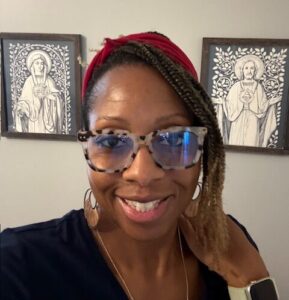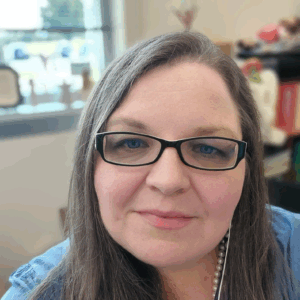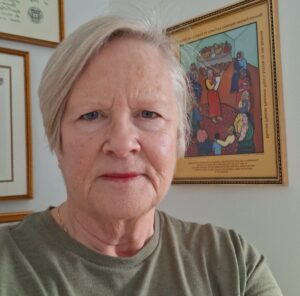We’ve Always Shown Up

“It must get lonely,” I thought to myself as I looked at the icon of Mother Mary to the left of the altar at Duc In Altam, the chapel situated alongside the Sea of Galilee in Magdala. I was a few days into a pilgrimage to the Holy Land and Rome with Seattle’s St. James Cathedral, and I had been thrilled to discover that we would be spending two nights in Magdala, home to Mary Magdalene, apostle to the apostles. On my way into the chapel, I lingered in the Women’s Atrium, which features pillars honoring the women who have followed Jesus throughout the ages, and stopped into the small side chapel dedicated to Mary Magdalene. The place was pulsing with the energy of holy women, and yet, as I settled in for Mass in the main chapel, I found myself feeling chagrined. In contrast to the atrium, which functions as a sort of architectural prelude to the “real deal” beyond its doors, the sanctuary was filled with images of men—namely, the twelve apostles—save the icon of Jesus’ mother Mary that I studied now.
I stewed in my exasperation, surveying the depictions of the twelve apostles accusingly, as though they were to blame for the systematic erasure of women from Christian history, before settling my eyes back on Mary. “It must get lonely,” I thought with a sigh, “being the only woman in the room, and so often.”
Now, I won’t say Mary answered me, in the sense that her icon didn’t crack a smile and start talking out loud, but what came to me next was this:
I’m never alone. Just look around you.
I took in the room: over 100 pilgrims, a majority of them women, filled the chapel. I thought of the language from a Holy Land synod report which made its way into the Vatican’s Document for the Continental Stage (DCS): “In a Church where almost all decision-makers are men, there are few spaces where women can make their voices heard. Yet they are the backbone of Church communities, both because they represent the majority of the practising members and because they are among the most active members of the Church” (#61).
We have always been the ones to show up. We were there at the foot of the cross, bearing witness to the grotesque and humiliating dying of our beloved rabbouni. We were there to anoint his body and prepare it for burial. We were there at his resurrection, and the first to be commissioned to proclaim the Gospel. We were there in early Christian communities, opening our homes and our wallets to missionaries like St. Paul, and later retrieving the broken bodies of martyrs and seeing to their burial in places where they could be venerated. We have not shied away from pain and suffering, but have placed our very bodies as witnesses in the midst of it. Then as now, in the midst of a global synod that has shone a light on the Church’s many wounds, we have been there. As the DCS reports, “Those who were most committed to the synod process were women, who seem to have realised not only that they had more to gain, but also more to offer by being relegated to a prophetic edge, from which they observe what happens in the life of the Church (#61).”
There is a grace in showing up. Since Magdala, I’ve had the distinct—and playful!—notion that when I attend Mass, part of what I’m doing is keeping Mary company, breaking up the routine of her token membership in the boys’ club. Though I delight in the idea that Mary welcomes and enjoys my company—I think she does!—if I’m being honest, I know that I’m not actually rescuing her from any solitary status as the lone woman in the room. Regardless of what the texts and the images depict, I know we’ve always been there. We have always been the ones to show up.
 Anna Robertson, Director of Distributed Organizing at Discerning Deacons, pictured here at St. Peter’s Square in Rome, making the gesture that early Christian communities used while praying.
Anna Robertson, Director of Distributed Organizing at Discerning Deacons, pictured here at St. Peter’s Square in Rome, making the gesture that early Christian communities used while praying.


